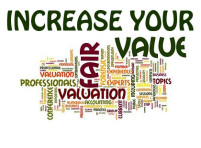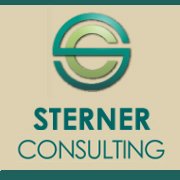Three Reasons to Sell Your Business Now

[Source:http://www.forbes.com/sites/hollymagister/2015/06/23/three-reasons-to-sell-your-business-now/ring. Here’s why.
To those of us who work with business owners interested in selling their business at the optimum time, it’s quite clear the time is now. In fact, many believe a perfect storm is brewing which will drastically affect the amount of cash a business owner ultimately receives following the sale of their business. Before we explore the situation creating the urgency to exit a business now, it’s wise to review the three factors which have the greatest impact on the sale price of a business other than the targeted buyer.
The two other important factors include the industry’s favor and the Merger & Acquisition climate—both of which will change over time. And neither of these are under the business owner’s control. Unfortunately, when you ask most business owners about their time horizon to exit their business, they respond by saying they will sell their business when it suits their personal needs. In fact, according to a recent survey by Citizens Commercial Bank of more than 450 middle market business owners and decision makers, supplemented by a series of indepth interviews, “nearly 70 percent of business owners say their expected retirement date will significantly impact when they decide to sell their company.”
Mergers and Acquistions Trends for Solid Waste

Marketing M & A Trends for Solid Waste Management by ElizaBeth De Maagd
Mergers and Acquisitions for solid waste management have fortunately been on the rise including several large acquisitions over the past few years including; Wheelabrator, Veolia, IWS, Choice and other large deals. That is a good indicator that the industry is healthier and more profitable for both buyers and sellers. In the general business marketplace, Mergers and Acquisitions have been increasing in 2015.
The M&A 2015 Trends Report from Deloitte reported that “Executives at U.S. private equity firms and corporations expect the robust pace of mergers and acquisitions to extend-or even accelerate-beyond that strong showing in 2015.” There are strong variables that have been positively increasing M & A activity. The interest rates from the Federal Reserve have retained at an historically low percentage, corporations have higher cash flow and relatively low cost of borrowing funds, and key interest rates are not expected to dramatically increase through 2017.
Sterner Consulting has seen a significant increase in questions and inquiries over the past year regarding selling established businesses and for help in determining a value for a business, facility, or permit for succession planning or for estate or tax purposes. This has been the case for solid waste businesses, and also for the scrap metal yards or processors throughout the country. Financing for acquisition projects is available from a select group of lenders who know and understand the waste industry, its markets and business model. About a third of our valuation and proforma modeling projects are for banks, equity funds, or financial institutions in the process of funding or completing an acquisition. We regularly publish guidelines on industry sales multiples categorized by type and size of waste industry business. The business has seen many shifts in volume and type of material managed by the system and we saw some recent numbers that may be of interest to our readers that were published by the NWRA.
Number of Organizations: An estimated 27,000 organizations (private sector companies and public sector governmental plus quasi-governmental organizations) were operating in the industry. More than 55 percent of these entities were in the public sector. Of the remainder, 45 percent were privately held, while only 0.1 percent (by Count – not volume) were publicly traded.
Revenues: The solid waste industry generated an estimated total revenue, net of intra-industry payments, of $43.3 billion. Approximately 76 percent of this amount was generated by the private sector. Excluding the segment of the industry that is primarily engaged in the operation of scrap metal yards and recycling operations, total industry revenue was equal to $39.8 billion.
Waste Quantities: An estimated 544 million tons of solid waste were processed in the U.S. Approximately 370 million (68 percent) tons were landfilled, 29 million tons (5 percent) were incinerated, and 146 million tons (27 percent) were recycled.
The sheer number of (relatively small) companies operating in this industry should fuel continued buying and selling opportunities for waste management companies, routes, landfills, transfer operations, and recycling facilities for a long time to come.
During the past few years, Sterner Consulting has participated in many industry transactions both large and small. We have participated in large consolidation projects all over the US, and we have worked with companies buying and selling single operating routes. We have completed several large analysis and valuation projects for companies planning for inter-generational change, moving the company leadership to the next generation. This year, we have worked with many companies in the Midwest and south central parts of the country that are seeing a resurgence of interest from buyers and consolidation companies seeking to add revenue, routes, and transport networks into their business models.
If you are a buyer or a potential seller of solid waste business assets, permits or projects, call us, we can help you bring that project to market and prepare documentation highlighting the business and the many important, unique and compelling reasons to buy your business or project.
On another topic, we recently noted that a few publications have been highlighting women working in the waste business. We talk with a lot of waste industry owners and managers from all over the country about their businesses, M&A activities, valuations, forecasting. and a wide range of consulting projects. I am constantly amazed at how many women own and operate very successful waste business companies in what is sometimes thought of as a masculine business. We have learned over the years to really appreciate working with those women owners and managers and one reason is; they actually listen and act on advice and internalize and integrate suggestions about business planning, finance topics and other consulting advice.
If you would like more information on our M & A division or our Business Broker division, please feel free to give me a call at 412.562.0891 and ask for Beth. You may also email me at beth@sternerconsulting.com.
Golden Eggs for Baby Boomers

From Baby Boomers to Millennials… Helping Your Business
Lay that Golden Nest Egg by ElizaBeth De Maagd
After I read an article in the New York Times about baby boomers selling their businesses for
their retirement nest egg, I realized the critical importance of maximizing a retirement package
through strategic business valuations, expert M&A help and correctly marketing a business to
realize its best return.
From 2008 to 2010, when many boomers who wanted to sell their business to move towards
retirement, or to pursue other professions, decided to retain and continue to operate their
business because the sale of their business at that time would probably have been completed at
a lower value instead of what they believed their business to be worth. This was due to the rapid
decline in the economy and generally lower business values during that period. Present day,
many baby boomers are relying on their business to provide a nest egg for their retirement. In
many cases, the value they receive from the sale, largely determines their lifestyle during their
retirement years.
According to Ken Connell, the business banking sales director at Huntington Bank in Columbus,
Ohio: “For many small-business owners, that’s their retirement. All of their wealth is in their
business.” In reference to baby boomers ready to sell, Lynn G. Ozer, the president of
government-guaranteed lending at Susquehanna Bank on Lititz, PA commented that, “Things
froze up for a few years, then got better. In 2012, 2013 and 2014, they put together great years.
Now, their books look good and they’re ready.” (Quotes and references from The New York
Times 2015)
Recently, Sterner Consulting has come across many baby boomers’ merger and acquisitions scenarios. One such scenario was where the baby boomer wanted to pass a solid waste management business to his heirs so the next generation could profit from his father’s hard work. Even though the business made millions of dollars of profit, the millennium children had other desires. His son’s dream was to start his own business in another industry which pertained to his college degree. The owner of the landfill contacted Sterner Consulting to maximize his nest egg for the sale of the entire business since the next generation decided to pass on taking over the business. Sterner Consulting was able to consult with the father on the importance of strategic informational business valuation data, on the value of a fully documented sale memorandum including financial and operational data and information that pre-answers most of a buyer’s likely questions about the business, prior to marketing the company to serious buyers.
The single factor for increasing this long-term nest egg’s return was clearly showing the value
and the components of his business to a Buyer in an orderly and informative manner along with
the clearly stated financial results and its related documentation. That approach, we believe,
produces a bigger ROI and enhances the golden egg that helps determine the value of a long
and hard life’s work. Beth De Maagd, Business Broker at Sterner Consulting, worked with the
family through the development of a strong valuation report and financial and operational
analysis and presentation of the business.
Richard Sterner has seen the M & A market change throughout the last thirty years. He stated
that, “A Business Owner needs to work as hard at preparing and presenting a business for sale
as he has worked to develop that business over the past decades.”
If you are a solid waste business owner or a business owner in any industry and would like to
provide a golden nest egg for your retirement, please contact Sterner Consulting where we can
design a tailored information valuation and presentation package for your business so you may
highlight to potential buyers, how truly valuable you have made your life’s work.
For more information, please contact Beth De Maagd at 412.389.8467 (cell) or 412.562.0891
or beth@sternerconsulting.com.
Enhance the Value of Your Company While You Stage Your Exit

Thinking of Selling Your Business? Below is a list of ways you can enhance the value of your company while you stage your exit.
Clear up any loans made by the company to stockholders, and any loans made by stockholders to the company. At least make sure they are repaid on schedule.
Keep as much of the balance sheet in current assets as you can. It’s a lot harder to retrieve dollars that are invested in fixed assets.
Avoid writing off personal expenses and unreasonable perks through the company.
A company is more valuable if it has a special market niche because that makes it less vulnerable to competitive attack. Less risk justifies a higher price!
Trim down excessive salaries.
Owners should gradually start transferring their own responsibilities to other employees. Buyers may question whether anyone else can really fill the owner’s shoes. This quells those doubts in advance.
Consider deferring unnecessary bonuses if it helps you demonstrate a trend of increasing earnings.
Don’t be afraid to leave cash in the company as retained earnings. You may pay a little more tax as a result, but the business will look like a better risk to both buyers and lenders because those reserves put the company on better footing to withstand adverse market conditions in the future.
Try to reduce fixed overhead expenses as much as possible without creating problems with inadequate management, deferred maintenance and tooling. Buyers get nervous when they see a company with high fixed costs.
Make sure that all of the income shows up on the company ledgers. If it doesn’t, you probably won’t get credit for it.
Consider longer depreciation options. As a private company, your goal has probably been to hold down stated profits by using faster write-offs. Your buyer, on the other hand, will assign more value to the company if the bottom line is greater.
Polish your image. Spend some money to improve your offices, and at least the appearance of your communications…
Recruit a Board of Directors that includes some distinguished individuals. Not only will you benefit from their wisdom, but they will enhance your company’s image by lending their name to it.
Consult your accountant for “tax-advantaged exit strategies”.
Get adequate insurance to ease the concern buyers might have over potential liabilities that may carry over to them after the sale.
If there is real estate involved, remove any underground tanks and clean up any environmental contamination in advance.
Hire a locally prestigious accounting firm to prepare audited financial statements that include their “unqualified opinion”. These should cover the past 3-5 years.
Develop a 5-year strategic business plan. This will give the buyer a picture of your company’s history, its strengths, and its future potential.
Source: Unlocking the Value of your Business – Author, Tom Horn
Valuations – 10 More Reasons to Get One Done

Although the most common reason for an accurate valuation is to prepare for the sale or purchase of a business, the list below details 10 additional scenarios where it may be beneficial to have an accurate Business Valuation.
To become aware of the factors that account for business worth, so that you can intentionally cultivate company value over time.
As a management exercise. By viewing your company as a prospective buyer would, you will gain a better picture of its strengths, its weaknesses, and where improvements can be made.
To determine the buy-out price for a partner’s share.
For estate planning. Owners can avoid overpaying gift and estate taxes by having a well-documented valuation study.
For property settlements following a divorce.
For an ESOP (Employee Stock Ownership Plan). A valuation must be conducted annually to support the employer’s deduction for the ESOP contribution.
To help obtain a business loan by demonstrating to lenders that the company is worth more than the book value shown on its balance sheet.
When investors in a private firm want to know how they’re doing. For companies on the public exchange, you can just check the daily stock prices, but investors in a private company must do a valuation to find this out.
To assess the income potential and risk in a business you’re considering.
To assess the value of a company’s assets prior to dissolution or reorganization.
[Source: Unlocking the Value of your Business, Author, Tom Horn]

 D5 Creation
D5 Creation